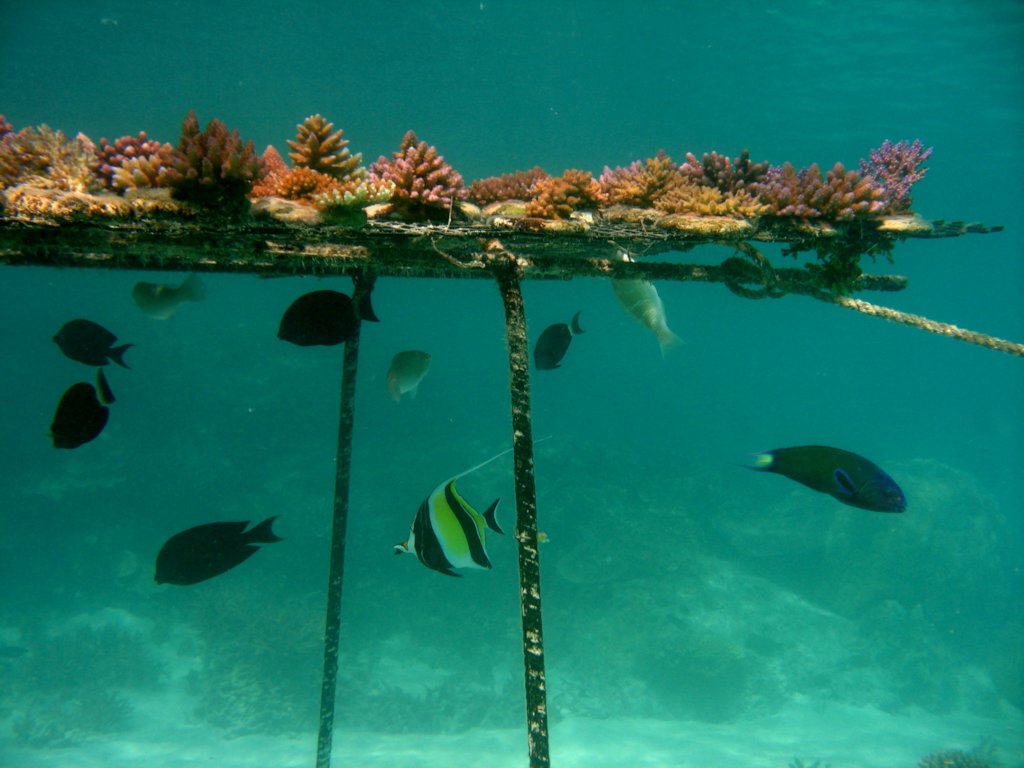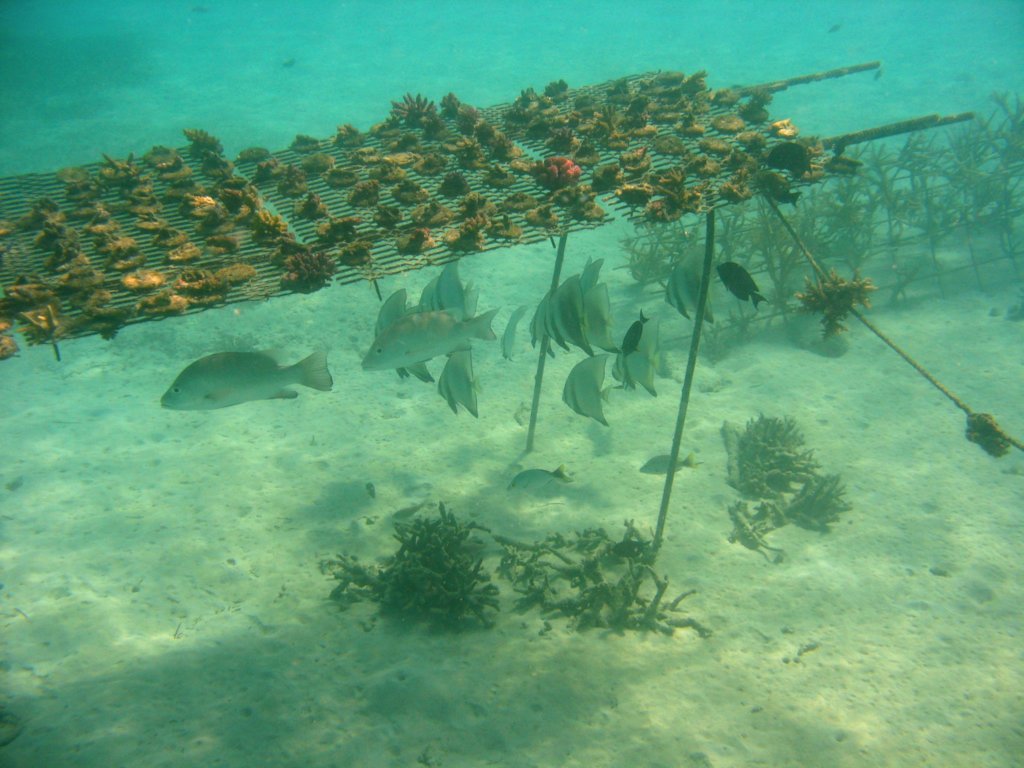By Austin Bowden-Kerby | Director
Last week we met with the Fiji Ministry of Commerce- they had requested the meeting. They were interested in our approach of gardening bleaching-resistant corals, as a way of helping coral reefs adapt to a warming ocean. The ministry is considering including our strategy in their National Adaptation Plan. Hopefully that would include funding for sites, training, and staff. The vision I am proposing to them is for each of the more than 100 resorts in Fiji to be given incentives to hire trained coral gardeners to carry out the propagation of bleaching resistant corals- to create patches of hot water adapted coral reefs throughout the country, with the resistance spilling over to other reefs as the corals reproduce and send out their larvae.
Along those lines, I will be conducting our very first ''Coral Gardening Certification Training'' for six university students and graduates, funded in full by Plantation Island Resort. The resort has agreed to take on one of the trainees as a full-time staff member to implement the strategy. This is a major breakthrough in mainstreaming the project. In June, a second training will take place, also sponsored by the resort.
In January, Mr. Taratau Kirata, the Director of the Line Island Fisheries Division, Kiribati, and host of the Christmas Island coral restoration project, visited us with his wife and daughter, staying with us for three nights at our Happy Chicken farm here in Fiji. During their stay we consulted on many aspects of the work and planned the next phase of the project for Kiribati. The first major trimming of the corals in the nurseries will take place in June, with the resulting coral fragments out-planted to reefs destroyed by the mass bleaching. We also plan on unveiling the site to the local and national level government officials at that time, with a public meeting presentation and a field trip to the nursery site- which has become quite impressive after three trips and nearly two years of work.
Tourism operators in New Caledonia will be funding the first coral restoration workshop for that country for April, and as Vanuatu is on the way, I will follow up with the three sites there a week or two beforehand. The airfares of the last Vanuatu workshops last September were also covered by another NGO, so donations to the project are being maximized.
It is the middle of our summer here in the South Pacific, the most dangerous time for corals. Reports from the Vanuatu and Kiribati coral nurseries indicate that while some minor bleaching is happening in some of the corals, most of the corals are thriving despite the warm temperatures. I returned yesterday from the most vulnerable of the Fiji nurseries- located on a very shallow reef flat, and while two of the corals are partially bleached, all of the others were not. We are learning that not all of the corals we have in the nursery are as bleaching resistant as we had hoped, and so the more sensitive corals need to be returned to cooler parts of the reef to make space for more bleaching-resistant ''super corals''. This Coral Coast site, only 45 minutes away, has the potential to become a valuable testing site for thermal tolerance in corals, due to the extreme temperatures of the site, even during non-bleaching years.
A reminder that all of our work is donated, with no one in the organization taking a salary, so this work is truly from the heart. Accommodation in the field is also mostly being donated, so the funds you have donated have mostly paid for workshop expenses, local transport, and materials for the nurseries. We have accomplished so much through the support of so many small donations.
A warm thank you to you all...
Vinaka vakalevu i kemuni.
Project reports on GlobalGiving are posted directly to globalgiving.org by Project Leaders as they are completed, generally every 3-4 months. To protect the integrity of these documents, GlobalGiving does not alter them; therefore you may find some language or formatting issues.
If you donate to this project or have donated to this project, you can receive an email when this project posts a report. You can also subscribe for reports without donating.
Support this important cause by creating a personalized fundraising page.
Start a Fundraiser
